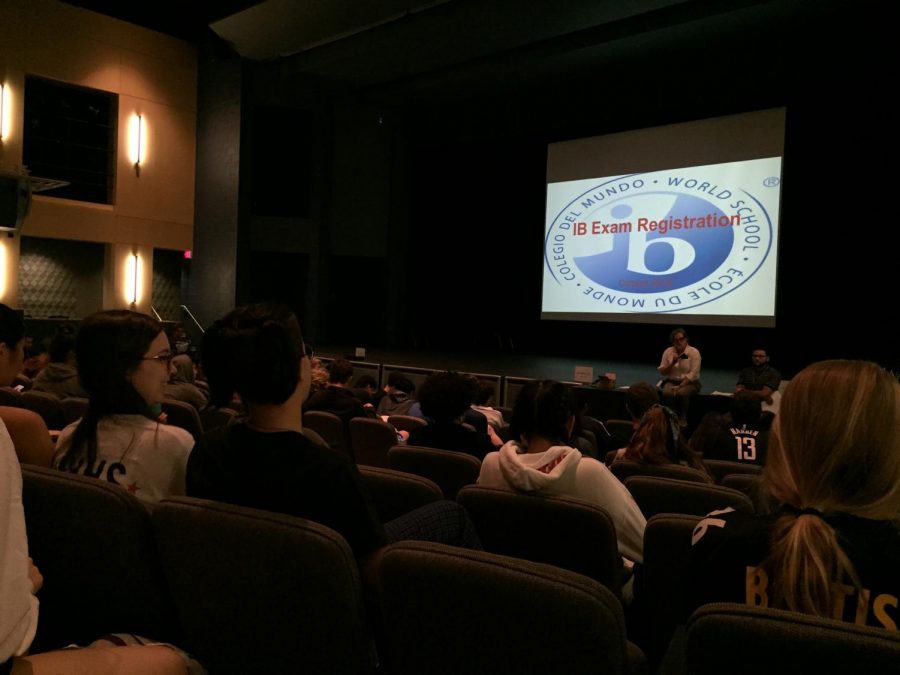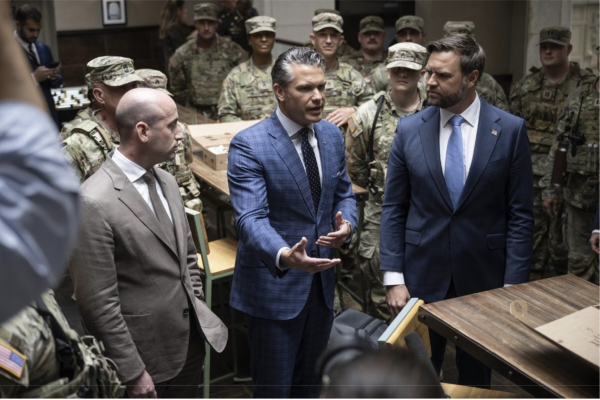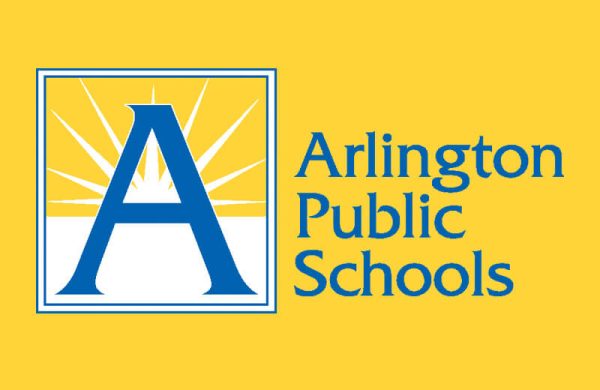IB Ready?
The International Baccalaureate (IB) Programme, which was added to the school’s diploma options in 1996, has become a key facet in the lives of juniors and seniors. In order to be receive an IB Diploma upon graduation, students have to complete a required service project and write an extended essay, as well as meeting specific class requirements. Underclassmen have access to information about the IB Programme, but it is only in their junior year that students are introduced to the more detailed elements, like the learner profile, and get a real taste of IB.
Juniors seeking the diploma are required to have taken Advanced Placement (AP) Government in sophomore year, but for many, this is the first time that they are taking primarily college-level classes. This sudden shift to a schedule fully loaded with advanced classes can be a difficult adjustment.
“So far, I’ve consistently had more work every night due to the amount of higher level classes I’m taking,” junior Radina Dancheva said.
On top of that, each IB class (which can be higher level or standard level) corresponds with an IB exam that will take place at the end of either their junior or senior year, and a required four to six page paper called an Internal Assessment (IA). For some, the anticipation of these extra assessments can make learning content at such a quick pace all the more stressful. For others, they seem like more of a faraway concept, but come May, they will become a reality for everyone taking an IB class.
“[Exams] don’t stress me out right now because it’s the beginning of the year, but towards the end of the year I’m sure that I will get really stressed,” junior Athena Butler-Christodoulou said. “Right now I’m just trying to focus on taking the class itself,learning about the topics, and getting good grades for the class.”
Many of the school’s IB teachers are happy to help them with all of these goals, as well as assist them in managing the changes that the IB Programme will bring to their school life.
“With a lot of IB classes, it can be disorienting at first,” IB English teacher Mr. Philip Krauth said. “I think teachers are aware of that, but the other side is if we’re like a coach or facilitator, we’re always going to be there to make sure students succeed. So maybe that disorientation at first is a good thing because it is a challenge and it forces the students to rise to the occasion to a degree. But I think the best preparation I can do is just show them what the course is.”
When the teachers design their classes, they keep in mind the IB requirements, but also often go above and beyond those requirements to teach their students real-life skills that they feel are valuable. This can make classes more intense at times, but teachers feel it is worth it in the long run.
“Everything we do in class is going to help with the exam,” IB Chinese teacher Ms. Janet Luu said. “When they ask questions, it is based on what you are writing. Also, at the same time, [the classwork] just improves your writing skills and vocabulary.”
In fact, this holistic approach to teaching a class, even if they have extremely high volumes of content, is actually even encouraged by the IB Programme. To many teachers, the rigorous curriculum is one thing, but the true defining feature of IB is the non-content specific skills that they hope to impart onto their students.
“A lot of [how I teach] has to do with the IB mission statement and the learner profile,” Mr. Krauth said. “Those are the sort of skills that students, by the time they leave the IB Programme, should exhibit. I think if you exhibit those skills, then those are the people that are needed in the world.”











